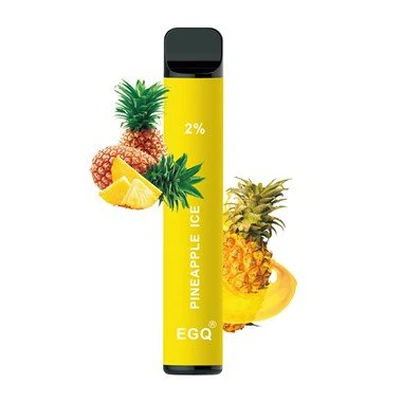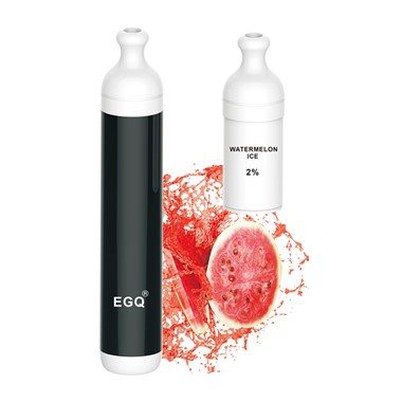The Compliance and Regulation of the Electronic Cigarette Market in Indonesia
Leave a message
Indonesia, as one of the electronic cigarette production bases, has clearly decided not to impose a complete ban on electronic cigarettes like Singapore. Instead, it will only prohibit those with drug additives or mental control. Although electronic cigarettes are not banned, like most countries, it has made many requirements for compliance and regulation of electronic cigarettes. The details are as follows:
On July 26, 2025, the Indonesian Food and Drug Administration (BPOM) officially promulgated the "Regulation No. 18 of 2025", where electronic cigarettes were first defined in Indonesia as "other processed tobacco products (HPTL)", and will be subject to the same level of regulation as traditional cigarettes starting from July 26, 2026.
For all enterprises producing, importing or selling electronic cigarettes in Indonesia, this means that the "strictest ever" gate has officially been closed: all aspects including ingredients, packaging, advertising and distribution have been tightened; after a 12-month transition period, non-compliance will result in removal from the market; the cost of violation ranges from warnings, market withdrawal to criminal risks.
1. Regulatory Timeline: Remember the Three Red Lines
1. 2025-07-26: Regulation promulgated, countdown begins; 2. 2025-12-31: The Jakarta "No Smoking Area Local Regulation Draft" is expected to be passed, and electronic cigarettes will be banned in public places along with cigarettes; 3. 2026-07-26: Regulation fully comes into effect, and the old regulation (No. 41 of 2013) is simultaneously abolished.
2. Regulatory Targets: Synthetic Nicotine Cannot Escape Either
Regardless of whether the raw material is from natural tobacco or synthetic nicotine, as long as it is heated and inhaled through an electronic device, it will all be subject to regulation. Open, refillable, HNB (hand-to-mouth) all categories are exempted.
3. Four Core Compliance Principles
1. Ingredients and Testing
Each "product variant" (different flavors, concentrations, or formulas) must have a nicotine content report issued by a BPOM-recognized laboratory;
Prohibited additives use a dual-track system of "negative list + scientific proof": two tests before market launch and circulation, both must be cross-verified by two different laboratories;
2. Packaging and Labels
Health warning text occupies 50% of the top of the front and back of the package, in black background with yellow Arial Bold font; each variant must have 5 sets of warning pictures, evenly distributed during production (20% for each set); prohibited words such as "low toxicity" and "gentle" are not allowed; it must also indicate "contains nicotine", "not for sale to those under 21 years old and pregnant women"; the packaging must indicate the nicotine content and tobacco oil composition; it must also indicate the production code, production date, and the name and address of the importer.
3. Pre-Market Report
Trigger scenarios: ① New variant launch ② Any change in formula, packaging, producer, or importer; Materials: Test report, ingredient list, 5 sets of warning pictures for packaging, laboratory recognition certificate; Approval: BPOM's "completeness review" within 7 working days, which does not equal approval, but any missing items will prevent the product from being placed on the market.
4. Distribution and Advertising
Online: Complete prohibition of social media advertising, e-commerce platforms must embed age verification (21+); Offline: Prohibition of sale within 200 meters of schools; Advertising, promotions, and sponsorship activities at sales points will be strictly restricted. Jakarta is about to include electronic cigarettes in the no-smoking zone, violators will be fined or even face criminal liability; Import: Only API-U (general importers) or API-P (manufacturers' own use) certified enterprises can declare, and must complete SNI certification and VPTI technical investigation in advance.
5. Tax and Pricing: Fiscal Package
Starting from January 1, 2025, electronic cigarettes have implemented new minimum retail prices + consumption tax, and the tobacco oil must also be labeled with a tax mark. In addition to value-added tax and income tax, the compliance cost is directly reflected in the terminal price - the profit margin left for small and medium-sized brands has been significantly reduced.
Six. Enterprise Action List (Suggested to Save)
1. Immediately conduct SKU inventory: Ensure that each variant requires separate testing and reporting; 2. Select the laboratory: The BPOM approved list for 2025Q4 will be announced, and make advance reservations for scheduling; 3. Design new packaging: 5 sets of warning graphics, 50% area, black and yellow color scheme, all in one go; 4. Parallel API and SNI: Importers apply for API-U, and the products apply for SNI 9070-2022 certification simultaneously; Electronic cigarettes are legally sold in Indonesia, and a recommendation letter from the Indonesian Ministry of Health, the Food and Drug Administration (BPOM), and the Ministry of Industry is required, as well as the Indonesian National Standard Certification (SNI). Only companies with API and the trade minister's approval for electronic cigarette import can import them;
5. Channel compliance: Upgrade the age verification system on e-commerce platforms; By the end of 2025, complete the site investigation within 200 meters for offline stores; 6. Establish a recall mechanism: The BPOM will impose a 3-level penalty for sampling non-compliance (warning → severe warning → forced removal), and a reserve budget for inventory recall must be set aside.
Six. Market Outlook: Shakeup or Opportunity?

High barriers will eliminate more than 30% of small and medium-sized brands, and the concentration of the leading enterprises will increase; Synthetic nicotine products are now subject to regulation, opening up an incremental market for compliant raw material enterprises; Taxation and price control will make Indonesia the "price anchor" of the Southeast Asian legal market, and the space for smuggling and arbitrage will shrink.
In addition, it is reported that the import of electronic cigarette equipment must be cleared at the designated five international airports and inspected by the inspectors appointed by the prime minister. By July 2026, the Indonesian electronic cigarette market will enter the "license + standard" era from "wild growth". Compliance and regulation are the eternal main body. Now, the countdown has begun: Are you ready?






